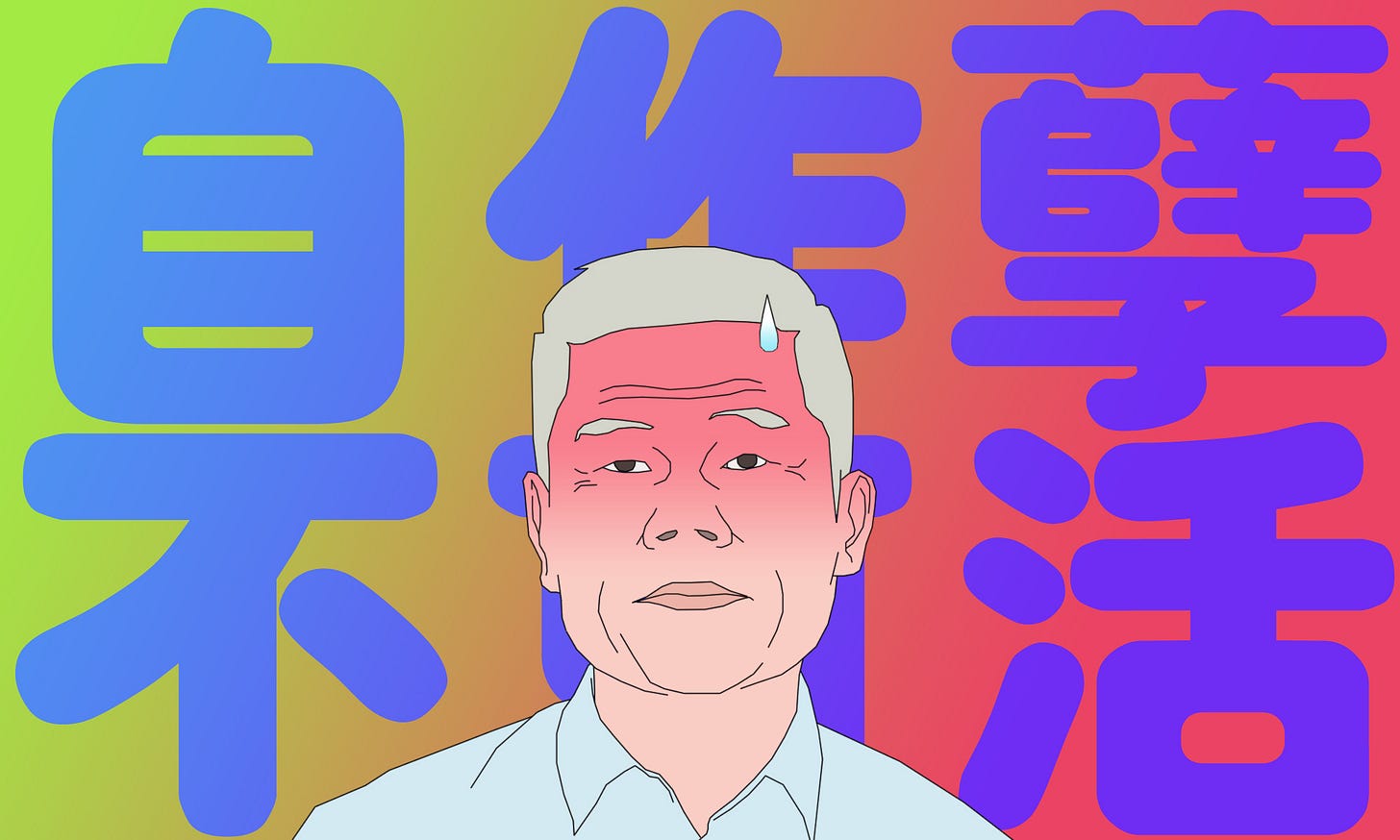"You reap what you sow" — Phrase of the Week
Nationalist online influencer fined for tax fraud

Our phrase of the week is: "you reap what you sow" (自作孽,不可活 zì zuò niè, bù kě huó)
Context
The Chinese authorities have fined a nationalist commentator, Sima Nan 司马南, more than 9 million yuan (US$1.2 million) for tax evasion.
Sima Nan is one of China’s most outspoken pro-government online influencers, with a total following of over 66 million across his social media channels.
Sima Nan a polarizing figure.
His devoted following see him as "speaking for the poor" (为穷人代言), and eagerly consume his ultranationalist content. Yet, he is also widely criticised for peddling propaganda purely to drive online traffic for his own commercial benefit.
Known for his fierce criticism of the West, he calls himself an "anti-US fighter" (反美斗士). He regularly attacks wealthy Chinese entrepreneurs, and makes a point of calling out high-profile tax evaders.
Following the announcement of his fine, Sima Nan broke his silence and made a formal apology.
But online critics were quick to point out his hypocrisy.
Evading taxes, and in huge amounts—this is truly a case of "you reap what you sow". His fall from grace is not brought by netizens but himself.
偷税漏税,而且数额巨大,“自作孽,不可活”,还需要网友落井下石?
Tōushuì lòushuì, érqiě shù'é jùdà, "zì zuò niè, bù kě huó," hái xūyào wǎngyǒu lái "luòjǐngxiàshí"?
And with that, we have our Sinica Phrase of the Week!
What it means
"You reap what you sow" (自作孽,不可活) directly translates as "bring disaster upon oneself, cannot live".
It’s a well-known six-character colloquial phrase, meaning those who commit wrongdoings bring misfortune on themselves, and can’t escape the consequences.
The earliest known citation of the phrase is in Shang Shu (尚书), also known as The Book of Documents, one of the Five Classics of ancient Chinese literature, complied in the early Zhou or late Shang period (around 1046 BCE). Shang Shu is a collection of speeches, edicts, and historical records, traditionally believed to have been compiled by Confucius. It serves as one of the foundational texts of Chinese political philosophy, emphasizing moral governance and the consequences of one's actions.
The phrase appears in the chapter, Tai Jia (太甲):
"If misfortune is caused by Heaven, one may still evade it; but if one brings disaster upon oneself, one has to face up to the consequences."
天作孽,犹可违;自作孽,不可活
Tiān zuò niè, yóu kě wéi; zì zuò niè, bù kě huó
This is a caution to rulers of the time against tyranny and misconduct, warning those who bring disaster upon themselves cannot escape their fate—a Confucian principle that rulers must govern with virtue, or face inevitable downfall.
This phrase has been widely cited in Chinese literature. For example, in Chen Xuezhao’s Working is Beautiful (工作着是美丽的), published in 1965, describing a character's fate, indicating their suffering was self-inflicted.
In the context of Sima Nan’s tax fraud scandal, he has only himself to blame. As a self-proclaimed patriot who rails against tax evasion, the very least he could do is pay his own taxes properly.
Now, he has to “reap what he sows.” Despite his attempts to shift the blame onto his management company and spin the scandal into a PR opportunity, this may ultimately be his downfall.
Andrew Methven is the author of RealTime Mandarin, a resource which helps you bridge the gap to real-world fluency in Mandarin, stay informed about China, and communicate with confidence—all through weekly immersion in real news. Subscribe for free here.
Read more about how this story is being discussed in the Chinese media in this week’s RealTime Mandarin 👇.



